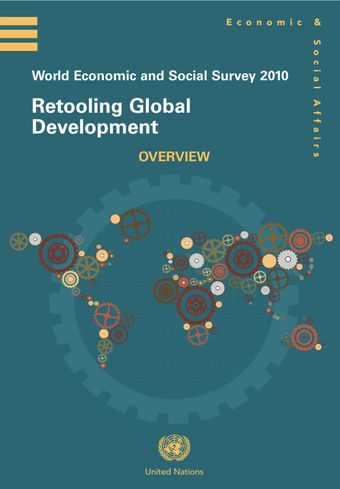A feasible globalization

- Author: United Nations Department of Economic and Social Affairs
- Main Title: World Economic and Social Survey 2010 , pp 133-150
- Publication Date: July 2010
- DOI: https://doi.org/10.18356/e6aaa430-en
- Language: English
Enormous changes in the workings of and the mechanisms of governance over the international economy are under way as a result of the current global crisis, the deepest the international community has faced since the Great Depression more than 75 years ago. However, the actual shape of the outcome is uncertain. While there are powerful interests pressing to restore the systems configuration before the crisis, even these will be thwarted by the significant economic trends that are already in evidence and the unprecedented restructuring that is already in train. The current recession could persist for some time, even if it does not turn into a depression, because of the thoroughgoing recapitalization and de-leveraging in the major financial sectors that has to take place. Even if the world were simply to be rebooted worldwide so as to function exactly as it had, one might expect the scale of private flows to be more subdued in years to come. Yet, more limited flows could still cause additional severe damage in an unreformed system. The enhanced risk for sovereign debt crises in Europe that emerged in early 2010 was matched by equally risky surges in short-term capital flows to emerging markets which triggered renewed financial turmoil worldwide. The fact that policymakers have been slow to respond highlights once more the glaring gaps in global economic governance.
© United Nations
ISBN (PDF):
9789210543583
Book DOI:
https://doi.org/10.18356/c0276af9-en
Related Subject(s):
Economic and Social Development
Sustainable Development Goals:
-
From This Site
/content/books/9789210543583c010dcterms_title,dcterms_subject,pub_keyword-contentType:Journal -contentType:Contributor -contentType:Concept -contentType:Institution105
/content/books/9789210543583c010
dcterms_title,dcterms_subject,pub_keyword
-contentType:Journal -contentType:Contributor -contentType:Concept -contentType:Institution
10
5



